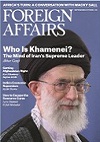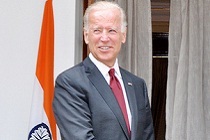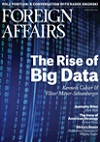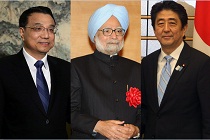The Limits of COIN Doctrine in Afghanistan
The U.S. needs rethink its tendency to blindly follow the 'COIN' doctrine.
 Courtesy: Foreign Affairs
Courtesy: Foreign Affairs
The U.S. needs rethink its tendency to blindly follow the 'COIN' doctrine.
Gateway House speaks to Farhat Taj, author of ‘Taliban and Anti-Taliban,’ about the general sentiment among the locals regarding the Taliban insurgents and how the Pakistani military establishment’s support for the insurgency will play out in the coming months
 Courtesy: Zeinab Mohamed/Flickr
Courtesy: Zeinab Mohamed/Flickr
Today, the role Wahabbism plays in geopolitics poses a severe security risk not just to the West but also to the Muslim world. The West needs to rethink its strategy of promoting Wahabbi International, and realise that Wahabbism cannot be a moderated geopolitical asset
 Courtesy: Ministry of External Affairs, India
Courtesy: Ministry of External Affairs, India
U.S. Vice President Joe Biden’s visit to India this week comes at a time when the India-U.S. bilateral relationship has gone seemingly adrift. Can this visit, which comes just months ahead of the Indian general elections, rejuvenate the relationship which is rooted in long-term common strategic interests?
 Courtesy: 2winTradez/Flickr
Courtesy: 2winTradez/Flickr
How did the Pakistani military fail to detect the raid in Abbottabad or the presence of Osama bin Laden? A report by a judicial commission in Pakistan, leaked by a TV channel on Monday, reveals the extent of the incompetence of civilian and military institutions, and the army’s complicity with the U.S.
 Courtesy: Foreign Affairs
Courtesy: Foreign Affairs
Legal justification and transparency of drone strikes have become a concern for the U.S. In reality, are these targeted killings advancing the strategic goals of U.S. counter-terrorism policy?
 Courtesy: Center for American Progress Action Fund/Flickr
Courtesy: Center for American Progress Action Fund/Flickr
The U.S. Secretary of State’s visit to India comes at a time when India is witnessing significant realignments in its domestic politics while the U.S. is busy tackling its cyber-spying allegations. Amidst these preoccupations, will the upcoming India-U.S. talks churn out substantive outcomes?
 Courtesy: Foreign Affairs
Courtesy: Foreign Affairs
A decade ago, the U.S. immersed itself in the greater Middle East with its wars on Afghanistan and Iraq. Will the current economic scenario force it to turn away from this region?
 Courtesy: Ministry of External Affairs, India
Courtesy: Ministry of External Affairs, India
While the recent India-Japan Joint Statement contains significant breakthroughs, the China-Pakistan Joint Statement reveals the absence of warmth between India and China. With the current flurry of bilateral exchanges, India is fine-tuning its approach to emerging regional realities, as are others.
 Courtesy: Pete Souza/The White House
Courtesy: Pete Souza/The White House
The announcement of the Pacific pivot by the U.S. in 2001 has led to several nations making bold political moves. However, the U.S. isn’t yet ready to be a regional protector against China. What does Washington have to do to prepare itself for the Pivot?